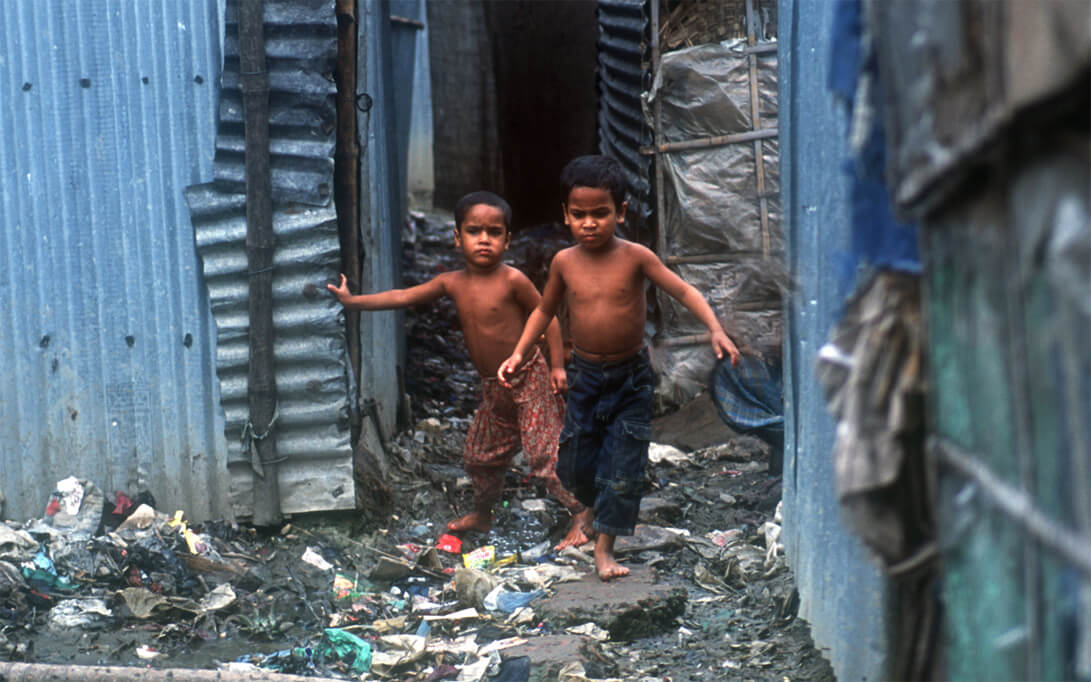LIXIL makes pioneering water and housing products that solve everyday, real-life challenges, making better homes a reality for everyone, everywhere.
- Global Site
-
- English
- Japanese
- Brand Sites
Global
- Global Site
-
- English
- Japanese
- Brand Sites


Roughly 3.5 billion people lack access to safely managed sanitation services,
and roughly 2 billion people lack basic handwashing facilities at home
A staggering 410 million people relieve themselves outside, out of necessity or custom. This can contaminate water sources and expose girls and women to the threat of violence and harassment.
Adequate handwashing facilities are lacking in homes and schools; many children are unable to practice proper hand-hygiene, the most effective way to prevent COVID-19 and other infectious diseases.
"Over 700 children die every day from diarrhea caused by unsafe water, inadequate sanitation and poor hygiene. Through this innovative partnership with LIXIL, we hope to help keep every child healthy and alive."
- Henrietta Fore, Executive Director of UNICEF

CHILDREN AT RISK
300,000 children under-five years of age die each year from diarrheal diseases due to a lack of safe water, sanitation and basic hygiene.
Fifty percent of malnutrition and approximately 25% of stunted growth in children have been associated with diarrhea and intestinal worm infections, often impacting them physically and mentally later in life. Schools in disadvantaged areas that lack proper hygiene and sanitation can especially affect girls during their period, causing many of them to drop out of school.
Over 30% of the world’s population does not have access to basic handwashing facilities at home. In the world’s least developed economies, nearly three quarters of the population lack access. 818 million children do not have access to handwashing facilities such as running water and soap at school either. Children are unable to practice effective hand-hygiene, the first line of defense to protect them from COVID-19 and other infectious diseases.
Children are losing lives without toilets and handwashing facilities.

THE COST
In 2015, the burden of dealing with poor sanitation and related problems cost some countries as much as 5 percent of GDP. Among world regions, Asia Pacific suffers the greatest loss at 1.1 percent. Africa loses 0.9 percent, Latin America and the Caribbean lose 0.6 percent and Eastern Europe, the former Soviet Union, and the Middle East lose 0.4 percent.
The global economy lost an estimated $223 billion USD in 2015 because of poor sanitation*.*LIXIL and Oxford Economics: The True Cost Of Poor Sanitation (September 2016)
"In many countries, this sanitation crisis has devastating consequences for public health and reduces children’s
opportunities for the future, as many drop out of school because there is nowhere to go to the bathroom."
- Jin Montesano
Director, Representative Executive Officer, Executive Vice President,
Human Resources, Communications, External Affairs, and Impact Strategy, and Chief People Officer, LIXIL Corporation

Join the movement
For only $25 USD, you can help one child access a toilet at home for a year or provide a school with 100 bars of soap. Your donation will be used to support LIXIL and UNICEF’s sanitation and hygiene programs.
Together, we can keep children healthy, safe, and learning at home and in school.
* "Progress on household drinking water, sanitation and hygiene 2000-2022" by UNICEF and WHO's Joint Monitoring Programme report
https://www.who.int/publications/m/item/progress-on-household-drinking-water--sanitation-and-hygiene-2000-2022---special-focus-on-gender
Get To Know More About Us!
UNICEF does not endorse any company, brand, product or service.




